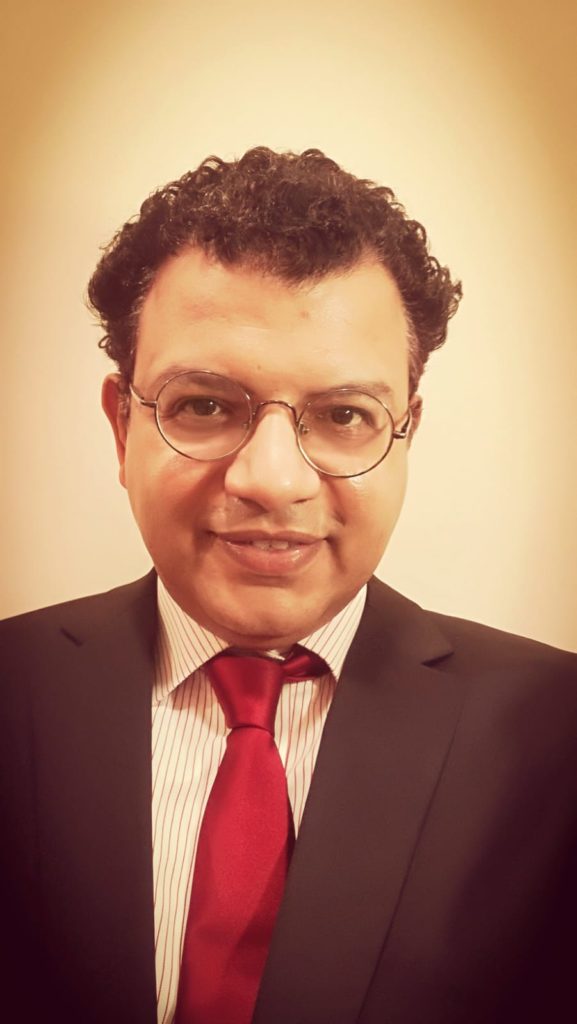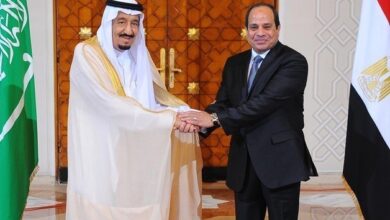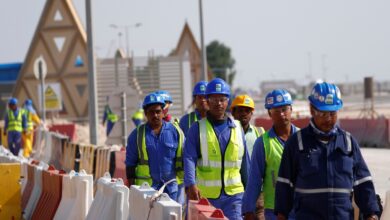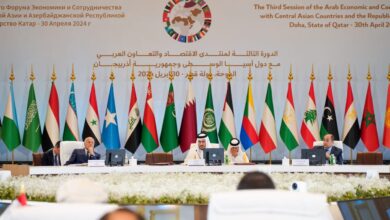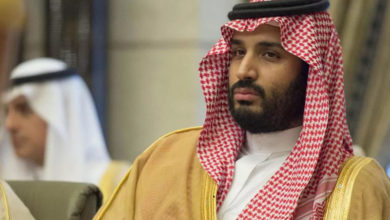
Introduction – Latin America in my imagination:-
Perhaps the first thing I learned in my life about Latin America was the name of the late great artist (Tahia Carioca) because she was the first to dance the (Brazilian carioca) dance on the stage of the Badia Masabni casino in the 1930s when the name (Carioca) later became her fame.
And of course, the mixed dance music with the African heritage that is close to our Eastern and Arab music, and dance styles such as samba, rumba, tango, salsa, and meringue, which we often love to see, which express the revolutionary and liberation spirit of these Latin peoples.
After that, through the Egyptian cinema, when we hear about immigrants who traveled to Brazil and made great fortunes that they left for their families, and from the study when we studied about the Diaspora poets.
Then the major sporting events came at the time, and we used to see in the World Cup, specifically Brazil, and Argentina, and their great stars in this game, including (Maradona), who has human landmarks in his history, as well as (Pele), who died several months ago.
Then in the nineties of the last century and the spread of the liberal tide in the world after the collapse of the Soviet Union and we heard in the news, where there were no multiple sources of information, about the existence of dictatorial regimes in Latin America and the necessity of getting rid of them with the importance of the liberalization of Latin American regimes, because of the beginning of America’s control over the media Global, and that all those who are against it are just rogue states that will fall.
My studies in the Department of Political Science at the Faculty of Commerce, Alexandria University, was the beginning of getting to know the political systems in the world and the leadership of Egypt through its late president, leader Abdel Nasser, to the countries of the south, including Latin America, and the beginning of my acquaintance with (the fighters) and the two great leaders (Fidel Castro) and of course (Che Guevara), and how they led revolutions in Latin America to eliminate imperialism, including Cuba and Venezuela.
Then the era of the Internet began at the beginning of the millennium and the emergence of specialized international news channels, which began to narrate about the experiences of other countries, and also began to produce films about the militants, on the basis that they embraced the principles of freedom of expression. We began to hear about Hugo Chavez as the President of Venezuela.
We were astonished by what he did in expelling the Israeli ambassador in 2008 after the Zionist entity struck Gaza. The media became different from China, Russia, Iran, and India, as new powers and the emergence of Lula da Silva as a leftist leader of Brazil.
And we began to learn about the founding of the BRICS group, which was in one way or another the initiative of the Russian political fox Yevgeny Primakov at the end of the nineties so that America would not be unique in the world system and impose everything it had. conditions in the world. Brazil was of course one of the originators of this group with Russia, China, India, and South Africa.
Then two satellite channels appeared specifically, broadcasting in Arabic, one Russian and the other Lebanese, (Russia Today) as it broadcasts in Spanish and has wide fame in Latin America and transmits its news. Similarly, Al-Mayadeen, an Arabic channel, has a website in Spanish. We were beginning to learn more about Latin America and the countries of the resistance, especially Venezuela and Cuba, Brazil, and Argentina.
It is worth noting that the former Argentine President (De Kirchner) was the subject of the world’s attention after her resonant speeches at the sessions of the United Nations General Assembly, which accused the West, especially America, of trying to impose sanctions on Argentina. As well as subjecting her to its control and trying to remove Argentina from defending its lands represented in the (Falkland Islands) with Britain, as well as trying to accuse the Lady of communicating with Iran in favor of Iran after the bombing of a Jewish synagogue in Buenos Aires in the nineties of the last century, as the Argentine judiciary swerved against her.
Then we watched the solemn funeral of the late Venezuelan President Hugo Chavez, which was attended by all the free people in the world, and the replacement of his student successor Maduro in 2014, then the West’s attempt to overthrow him through an opposition that has interests with America. Among them is Guido, then we watched live the attempt to assassinate Maduro in 2019 and the great Russian, Chinese, and Iranian intervention to support him and stop the American media campaign against him after the people elected him for the second term.
Then, finally, watching Maduro in the region before the end of 2022, after a tour in which he visited Iran and Lebanon after his visit to Russia, and had an interesting dialogue with him through Al-Mayadeen news channel.
Maduro and honoring him in Cairo on the occasion of 10 years of his rule of Venezuela:-
Many thanks, Your Excellency, to the Venezuelan Ambassador to Egypt, Mr. Wilmer Omar Barrientos, for inviting me at the end of last Ramadan, to attend this session at the tenth anniversary of the rule of the struggling Venezuelan President, who resembles us as a citizen from the south, (Mr. Maduro). Where the ambassador praised and welcomed my presence, especially after we met for the first time at the International Quds Day celebration at the residence of the Iranian ambassador in Cairo, Mr. Muhammad Sultani Fard.
And the same thanks to the members of the ِAl-Hewar Center under the leadership of General / Hamdi Labib – Vice President of the Center, for his esteemed speech at the opening of this esteemed symposium. And also to the Director General of the Center and a friend for several years, Dr. Ahmed Taher, and to the youth of the Center who welcomed us warmly, and the direction of research centers in Egypt to pay attention to the affairs of the South, including Latin America.
This important continent, with which we have had strong relations as (displaced countries) since the nineteenth century for the Egyptians, and also the golden period was the period of liberation from colonialism that these countries faced, especially the Spanish and Portuguese occupation militarily. Then came the economic occupation of America, as Latin America was the first backyard for selling American goods, before the establishment of the European Union.
Let us never forget the leader Abdel Nasser and his young comrades at the time and the best revolutionaries in the world, including the comrade doctor and the simple beloved character (Fidel Castro), and certainly, the Venezuelan fighter (Che Guevara), for whom poetry was composed in Egypt by the revolutionary leftist poet (Ahmed Fouad Negm – is his famous poem ” Guevara died”) on the day of his assassination.
Where the words of the researchers, which were professionally moderated by Mr. Mohamed Rabie, including Messrs. Ahmed Mahmoud, Ahmed Abdullah, Nancy Talal Zaidan, as well as Ambassador Barrientos, poured in on the achievements of President Maduro and his attempt to erase stereotypes about Venezuela in particular, and about Latin American countries, generally.
The presence of the majority of Latin American ambassadors stressed the importance of this, including, for example, but not limited to, the ambassadors and consuls of (Argentina – Cuba – Paraguay – Colombia – Peru – Bolivia), which confirmed the extent of the interdependence of the Latin American continent and the extent of their respect for each other, and this matter Which was confirmed by (Ambassador Barrientos) in his speech on the union of Latin American countries and the future of these countries and their role in creating a new world order, and it was a wonderful intervention on his part despite the length.
Maduro’s achievements are as follows:-
Over the past ten years, Venezuelan President Nicolás Maduro has presided over some impressive achievements in the South American country. One of the most important achievements of Maduro and his administration is the improvement of the country’s infrastructure. Since taking power, the Maduro regime has invested heavily in transportation projects, including building new highways and widening existing ones. Under Maduro’s leadership, Venezuela has also invested in new hospitals, schools, and other public works projects.
These investments in infrastructure have improved the quality of life of Venezuelans and facilitated the efficient delivery of goods and services. In addition, Maduro has also implemented a number of social and welfare reforms that have improved health, education, and housing options for the country’s citizens. It also increased access to credit, expanded job training opportunities, and reduced poverty rates. In addition, Maduro implemented a number of economic reforms that helped the country create jobs and boost the economy. These reforms included bringing foreign investment into the country and establishing free trade zones.
These initiatives have helped stimulate the economy, create job opportunities and attract new job opportunities. As a result, Venezuela experienced increased economic growth and lower inflation. Overall, over the past ten years, Maduro and his administration have made great progress in improving the quality of life for Venezuelans and promoting economic growth.
The role of oil on the Venezuelan economy:-
Venezuela was one of the biggest beneficiaries of high oil prices during the first decade of the 21st century. As one of the world’s largest oil producers, Venezuela’s economy and public finances have been greatly boosted by the increase in crude oil prices, which reached unprecedented levels by the mid-2000s.
This sudden influx of wealth allowed the government to invest heavily in public works and development projects while helping to maintain an already generous welfare system. Moreover, increased revenues allowed the government to reduce its dependence on external borrowing and debt.
Thanks to the strong oil prices, Venezuela was able to collect sufficient funds to finance its development projects and boost its agricultural production, thus diversifying the country’s economic base. The rise in oil prices also provided additional capital, allowing Venezuela to reduce its dependence on imports while benefiting from the export of its non-oil commodities, such as aluminum and iron ore.
As a result, Venezuela has enjoyed an improved trade balance that has helped maintain its economic growth and improve economic stability. Overall, the huge rise in oil prices during the 2000s benefited the Venezuelan economy and society at large, allowing it to achieve a level of economic prosperity that would have been impossible without an influx of money from this lucrative commodity.
Contrary to what some of the attendees said, Venezuela does not want to become an oil-only country. The existence of a strategic commodity that runs life, such as oil or gas, gives the country weight. As long as it has strong alliances with powerful countries other than the West, Venezuela’s relations are deepening with Russia, China, Iran, India, and with friendly neighboring countries.
Russia would not have been able to impose its position and trample on NATO’s neck, without a strategic commodity such as natural gas inside Russia, and also the fact that Putin has prepared for this battle since 2008 and the new alliances that he built with the East and south, and here we benefit from successful experiences.
Also, as I mentioned, oil was the main currency of Venezuela during the days of (Chavez), when sanctions were imposed on Venezuela, and he was able, with his sophistication and out-of-the-box thinking, to obtain necessary commodities such as meat and wheat from neighboring countries such as Argentina. This is done through the barter system, and without the need for dollars or any currencies, only for a national economic mentality – and this is a lesson perhaps for the economic group in Egypt, most of which want to insist on not giving up the (dollar) and think of other alternatives that avoid us crises and greater debt interests.
The role of the new powers supporting Venezuela:-
As political rivalry continues to escalate in Venezuela, rising world powers such as Russia, China, and Iran are increasingly vying for their presence in the country against the US-backed opposition. Accordingly, Russia and China have provided significant financial support to the government headed by Venezuelan President Nicolás Maduro, while Iran provides unspecified military assistance to the regime. At the same time, the United States and other Western countries have maintained a hard line against the Maduro regime, imposing tough economic sanctions and staunchly supporting the opposition.
As a result, there is growing anxiety, in the wake of the Western vacuum. Likewise, the rise of the left in Colombia and Brazil, Brazil’s membership of BRICS, and its recent agreements to put the dollar aside and deal in local currencies with China indicate that the rising powers (Russia, China, and Iran) can actually increase their influence at the expense of the economically defeated West due to the situation in Ukraine, according to several Western sources.
While the fate of the country and the region remains uncertain, if the Kremlin, Beijing, and Tehran are able to capitalize on their growing diplomatic, economic, and military influence in the region, the future of Venezuela may be determined by these powerhouses. This was stated in several international and Latin reports.
Final Remarks:-
One of the most important things I did after attending this symposium, in my capacity as head of the Asia Center for Studies, was my request to meet the ambassadors of Latin American countries who came to get to know them more closely.
Indeed, the Latin ambassadors are naturally as warm as we are, and they received me with embraces, open heart, and smile. We talked about the possibility of Egyptian-Latin cooperation in general and the best practical and fruitful ways of this cooperation.
One of the proposals that should be done in Egypt is to establish an institute or college for Latin American countries within one of the major public universities. Similar to the Faculty of African Studies at (Cairo University).
Or it could be an independent university that serves the interests of Latin American countries in the region with the largest country in the region, Egypt – similar to (Senghor Francophone University) in my city (Alexandria) and with joint funding from all Latin countries with the Egyptian side.
Also – media investment is very important for the Latin side in Egypt because there are many peoples in our region who do not realize much about the rapid developments in Latin American countries, whether political, economic, social, or cultural – most Latin American countries enjoy ethnic, cultural and religious diversity without extremism or prejudice, Because they are countries that respect people, and it is a unique experience that can be generalized, especially since the circumstances of these countries are close to ours.
Perhaps there is an attempt by (Al-Mayadeen Channel), a unique Arab channel through its weekly program (Tele Sur), to shed light on Latin America and its vision of the world, as well as the media alliance between the channel and Venezuelan and Cuban TV – for example, there are no Egyptian news correspondents and analysts inside Latin America, and what We know him only about the Latin countries, we know him through international channels, especially the American and European ones.
This cooperation is beneficial for both countries, as it helps create economic and social stability. Latin American countries can offer Egypt a variety of products and services that can help it diversify its economy.
Latin American products such as agricultural commodities, tropical fruits, and manufactured goods are in high demand in Egypt due to high quality, reasonable prices, and fast delivery. On the other hand, Egypt also has a variety of goods and services such as imports of raw materials and textiles strong selling points, while Egyptian technology and know-how can help companies in Latin America to compete more effectively in their markets.
In addition, Latin America and Egypt can work together to facilitate trade agreements and free trade agreements that allow for the free flow of goods and services between the two countries. By working together, these two regions can mutually benefit from this economic cooperation and enhance opportunities for economic growth, investment and job creation.
Here we can talk about the technological progress in Egypt in the field of information technology and artificial intelligence, which can open common areas between the two sides, especially in information and media exchange and the creation of emerging projects needed by both sides, which I will not speak about at the present time.
Among the most important of these is the facilitation of payment and payment methods with regard to mutual trade between the two parties and banking, scientific, cultural, and tourism applications that Latin America needs, away from Western control in this sector, in the event that there is a common desire to do so.
Or activating these projects between small investors and business incubators between the two parties, and will make a difference, and here in Egypt, we have many universities and advanced institutes in this aspect.
Because what really caught my attention is that the volume of trade exchange between Egypt and the Latin American continent combined is only $8 billion, according to official statistics, and this volume is still low, although the opportunity is now ripe because of inflation and the need to obtain resources at a cheaper price and greater competitive advantages.
In conclusion – I hope that we will activate the partnership because the best time to do it is now and in all sectors, as it is necessary to revive South-South cooperation.
Please be guided by the above
By:
Mr. Ahmed Moustafa
Egyptian Economist and International Youth Coach
Director of Asia Center for Studies and Translation
Asia Center for Studies and Translation – Directed by Ahmed Moustafa (wordpress.com)
Master Holder in Political Economy 2021, HSE Moscow
Member of CODESRIA, Dakar, Senegal, and Group of Strategic Vision
Russia and Islamic World, Journalists Against Extremism
Cellphone: +201009229411
Email: solimon2244@yahoo.com
ahmedmoustafa830@gmail.com

